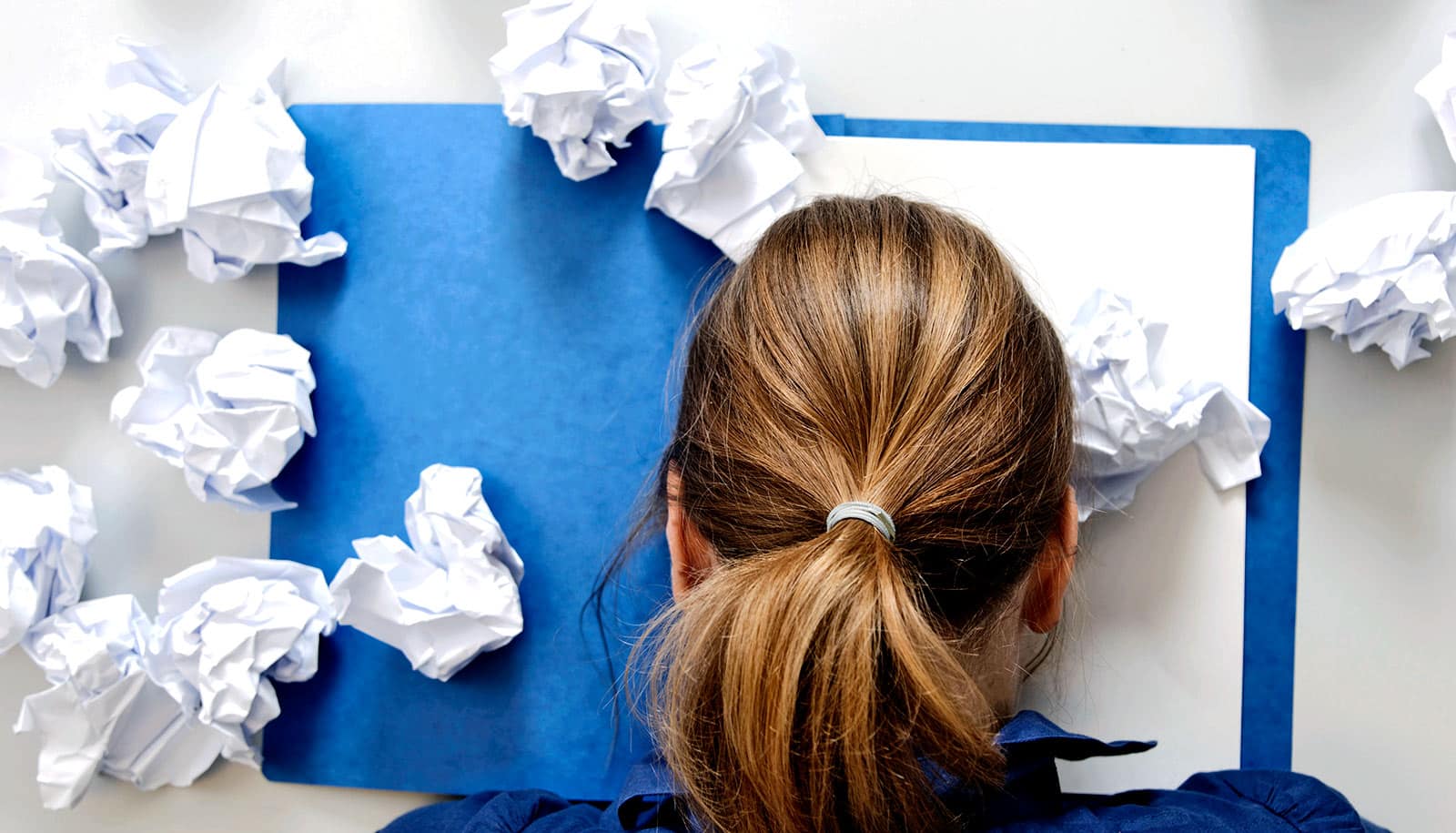People with math anxiety often steer away from more difficult math problems, even when solving them leads to monetary rewards, according to new research.
“You can be motivated to do well in something, but still make suboptimal decisions in subtle ways,” says Jalisha Jenifer, a doctoral student at the University of Chicago who led the study with Kyoung Whan Choe.
“Asking people to choose between easy, low-reward problems and hard, high-reward problems was an excellent way for us to see how individuals with math anxiety might make suboptimal decisions to avoid math in their everyday lives,” says Choe, a postdoctoral scholar in the psychology department and at the Mansueto Institute for Urban Innovation.
Math anxiety and math avoidance
The study produces the first experimental evidence that math anxiety can predict math avoidance—a connection that prior research had widely suggested but not verified.
Studying nearly 500 adults aged 18-35 through a computer program called the Choose-and-Solve Task (CAST), the researchers gave participants a choice between math and word problems labeled “easy” and “hard.” The easy problems were always worth two cents, while the hard problems were worth up to six cents. They also informed participants that the computer-adaptive task would adjust to their individual abilities, enabling them to solve about 70% of the hard problems.
Although participants attempted “hard” word problems when promised higher monetary rewards, they rarely chose to do the same for math problems—that is, they behaved as if the costs of harder math outweighed its benefits, even when that wasn’t the case.
These results suggest that fear and apprehension may hamper many people trying to improve their math skills. For example, someone seeking a good grade in a math class may spend too much time studying problems that don’t challenge them.
The findings also indicate that math anxiety could affect everyday decisions such as calculating tips or change. Previous studies have suggested an anxiety-avoidance connection through the correlation of anxiety and the avoidance of math courses or STEM-related careers, rather than examining how people react directly to math problems.
The scholars hope that the CAST can be used with teens and children in order to help identify students who are likely to avoid putting effort into math. They are also conducting a follow-up study using functional MRI to examine participants who avoid hard math in the same task—which could reveal the brain mechanisms behind that suboptimal decision-making.
“Developing the CAST was only the first step toward investigating what drives people’s decisions to avoid math,” says Choe.
Not just ‘bad at math’
“People often say that being anxious about math is just a byproduct of being bad at it. Our research shows that isn’t true,” says senior author Sian Beilock, president of Barnard College and a leading scholar of math anxiety.
“Even when math-anxious people are capable of doing math, they avoid it, which means that educators and parents have to think about how we can lower math anxiety in our kids or we are going to miss students who are capable of success in math and science and just stay away from it.”
Committed to making scientific research more accessible, the authors have made the task, data, and analysis code from their study freely available on the Open Science Framework.
“This research is a great demonstration for how unique insights can be achieved by combining cutting-edge behavioral paradigms with novel psychological theories,” says Berman, who studies cognitive effort through brain imaging and computational models. “Similar paradigms can also be employed to study other effort-based decision-making tasks, such as the choice to exercise or eat healthier.”
The researchers also discovered that not all participants who reported feeling math anxiety avoided difficult math problems. They hope to explore the reasons behind such behavior in future studies.
“We thought everyone who was anxious would avoid math, but math-anxious individuals don’t appear to be a monolithic group,” Jenifer says. “We are seeing individual differences in how math anxiety influences avoidance, which is an exciting finding that we hope to investigate further in later research.”
“By understanding how some math-anxious individuals could overcome their tendency to avoid math, we will be able to turn the vicious cycle of math anxiety into a virtuous cycle of math success,” adds Choe.
The research appears in the journal Science Advances.
Additional coauthors are from the University of Chicago and Stanford University. Funding for the study came from the National Science Foundation, Spatial Intelligence and Learning Center, TKF Foundation, John Templeton Foundation, Institute of Education Sciences, and the Mansueto Institute for Urban Innovation.
Source: University of Chicago



